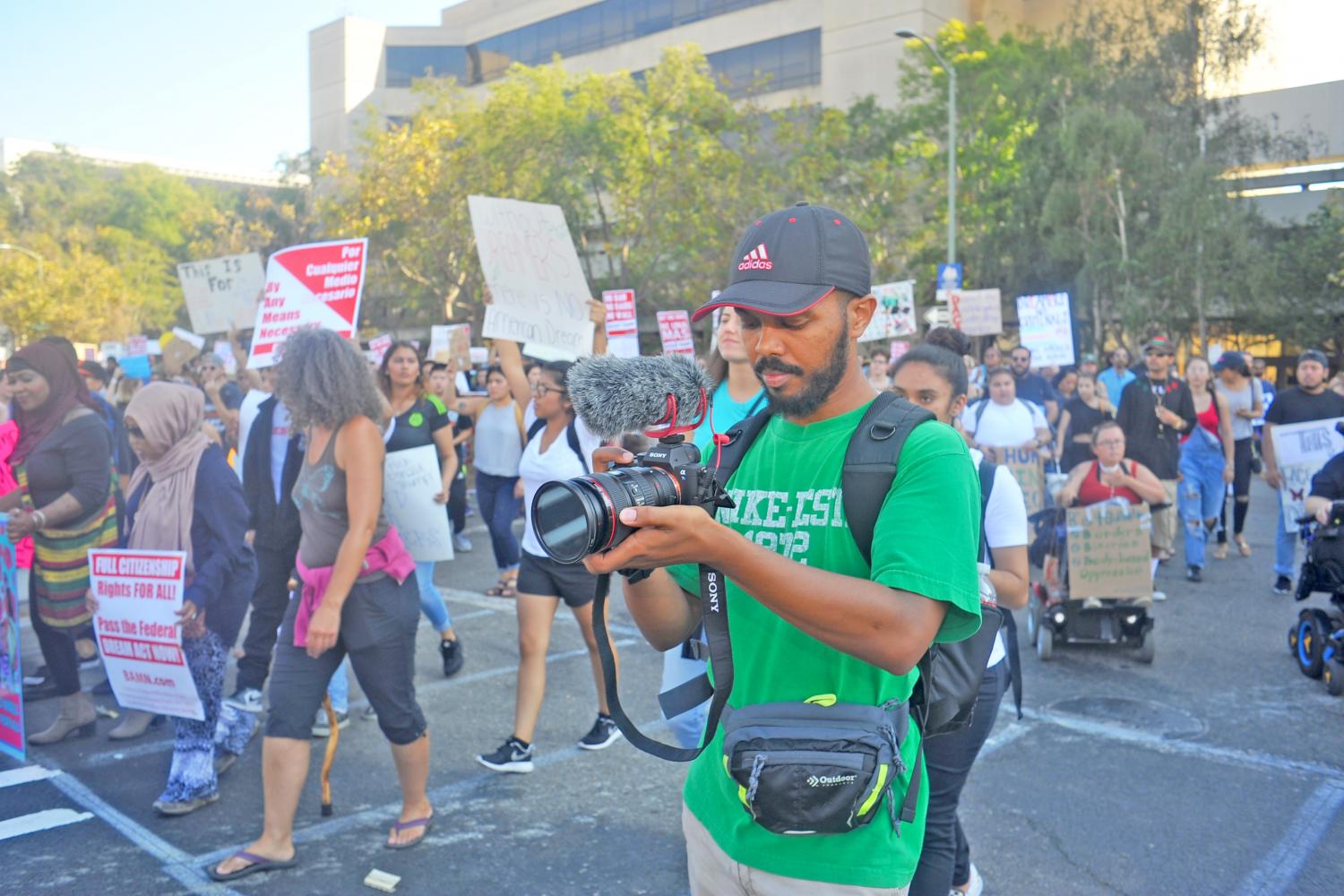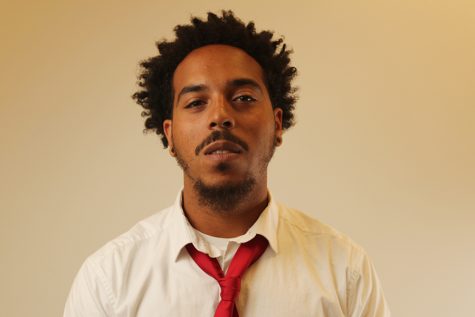Committee develops undocumented media outlet project
Professor organizes a DACA Media Committee to support immigrant student population
Richmond resident Taye Taye records a video during the Defend Daca rally and march to stand in solidarity with Deferred Action for Childhood Arrivals recipients in Oakland on Saturday. Taye gathers content for a political documentary following the election of Donald Trump.
Sep 14, 2017
After President Donald Trump’s decision to rescind the Deferred Action for Childhood Arrivals (DACA) program, ethnic studies department Chairperson and La Raza studies professor Agustin Palacios is organizing a DACA media committee in support of Dreamers and their families.
As DACA recipients continue to live in fear of ridicule and deportation from the country they consider home, the DACA media committee plans to focus its efforts toward working with district officials to create resource centers for immigrants on all three of Contra Costa Community College District campuses.
“We want our community to know that although they may be here illegally, they have rights,” Palacios said. “We want our immigrant families to know they’re supported and not alone.”
La Raza Student Union (LRSU) President and engineering major Ricardo Sanchez is working alongside Palacios to get the committee established, something he said he feels is vital to counter the attack on immigrants by certain segments of the country’s population.
In addition to being the LRSU’s president, Sanchez is also a DACA recipient who came to America with his parents when he was only 10 years old.
He said he now fears for his and his family’s future in the United States.
“Trump is showing the country that what he really believes in is hate,” Sanchez said. “We have to unify and stand up against it.”
Palacios said the media committee will be constructing a webpage that will act as an “information clearinghouse” to provide concerned individuals with the latest news on DACA and contacts for possible legal help.
He said his vision for the website is to be a, student-operated, one-stop hub for people with concerns regarding DACA as well as an online support group for immigrants.
Students on the committee will be tasked with gathering credible news publications and posting them on the website, Palacios said.
The committee also plans to create a social media platform to help spread the word about the committee’s effort.
“It will also be used as an outlet for students to share their stories,” Palacios said.
The committee plans to designate a YouTube channel for immigrants and Dreamers to tell stories about their experiences in America to the world. They also plan to communicate through through podcasts, opinion pieces and small documentaries, he said.
Sanchez said he feels it’s extremely important for Latinos, especially DACA recipients, to tell their stories to help people sympathize with immigrants in fear of deportation and also to put a human face on America’s immigration issue.
“Just hearing the number 800,000 recipients doesn’t affect people enough to make them care about DACA,” Sanchez said. “Bringing our stories to light will hopefully bring people together on the issue and grow support for us who need it most.”
Sociology major and LRSU member Nestor Guzman said he isn’t a DACA recipient, but he’s a Mexican-American who feels propelled to fight as an ally to Latino immigrants since President Trump made his campaign promise to rid America of undocumented Mexican immigrants and construct a southern border wall.
“I have friends who are DACA students and I feel like what’s happening to them is not right so I have to stand up against it,” Guzman said. “We’re coming together to bring awareness and to show support for all immigrant families.”
Sanchez said La Raza Student Union and Puente Club are teaming up to support the DACA media committee and will be covering the committee’s rollout in their next club meetings.
Guzman said if everything goes as planned, the movement has the potential to go viral and reach millions of people worldwide.
People who are interested about learning on how to get involved in the DACA media committee can email professor Palacios at apalacios@contracosta.edu.



